By VeganAcneSufferers
When under the care of a dermatologist, Isotretinoin (commonly known as Accutane) is widely considered the "gold standard" and most effective treatment for severe, cystic, or treatment-resistant acne. While most patients achieve clear skin after a 4 to 6-month course, a common question remains: Can acne come back after Accutane?
The reality is that an Accutane relapse is more common than many expect. Recent clinical data suggests that the long-term cure rate may be lower than initially thought, with relapse rates ranging from 10% to over 60% depending on various biological and treatment-related factors [1].
What is an Accutane Relapse?
A relapse is defined as the re-emergence of acne after completing a full course of isotretinoin. This can range from mild comedonal acne to a return of severe inflammatory nodules. According to a 2025 cohort study published in JAMA Dermatology, approximately 22.5% of patients experience a relapse, with 8.2% requiring a second course (retrial) of the medication [2].
The factors that determine if you will relapse after Accutane:
- Severity of Acne - Severe or truncal acne often requires higher cumulative doses to prevent recurrence.
- Age - Younger patients (under 20) tend to have higher relapse rates due to ongoing hormonal shifts [3].
- Diet During Treatment - Taking Accutane with a high-fat meal is critical for absorption.
- Cumulative Dosage - Reaching a target dose (typically 120–150 mg/kg) is a strong predictor of long-term success [4].
- Gender - Males, particularly those with extensive back or chest acne, may face a higher risk of relapse [1].
- Hormonal Factors - Women with underlying conditions like PCOS may relapse without concurrent anti-androgen therapy [5].
- Treatment Duration - Continuing treatment for 2 months after the skin is completely clear significantly reduces relapse risk [6].
- Metabolism - Individual differences in how the body processes the drug can affect its efficacy.
What Is Accutane?
Accutane (isotretinoin ) is a powerful oral retinoid that works by shrinking the oil (sebaceous) glands, reducing oil production, and preventing clogged pores. It is often the "drug of last resort" for those who have failed antibiotics or topical treatments.
While there is often fear-mongering regarding its side effects, isotretinoin is considered safe when monitored by a professional. Common side effects like dry lips and skin are actually clinical indicators that the medication is being absorbed effectively.

Will Accutane Work Permanently?
Isotretinoin remains the most clinically effective anti-acne therapy available [7]. However, it is not a guaranteed permanent cure for everyone. For many, it provides years of remission, but for others, acne may return—often in a less severe form.
Recent research highlights that cumulative drug exposure is the most important factor in preventing a relapse. Patients who do not reach the recommended cumulative dose of 120–150 mg/kg are significantly more likely to see their acne return [4].
8 Reasons You May Relapse After Accutane
1. Use on Less Severe Cases
Isotretinoin is now frequently used for moderate acne. Patients with milder cases may perceive the return of even a few spots as a "relapse," whereas those with historically severe disease might consider the same result a success. This shift in patient expectations can inflate reported relapse rates.
2. Younger Age at Treatment
Younger patients are at a higher risk because their hormones are still in a state of flux. While treating acne early can prevent permanent acne scars, these patients should be aware that a second course might be necessary later in life [3].
3. Poor Absorption (The "Fat" Factor )
Standard isotretinoin is highly lipophilic, meaning it must be taken with a high-fat meal (at least 30-35% fat) to be absorbed. Taking it on an empty stomach can reduce absorption by nearly 70%, leading to a lower "real" cumulative dose and a much higher risk of relapse [8]. Aim for healthy fats like avocados, nuts, or olive oil.
4. Insufficient Cumulative Dosage
Relapse is minimized when the total dose reaches at least 120 mg/kg. New guidelines also suggest extending the course for 2 months after the skin is 100% clear to ensure all sub-clinical micro-comedones are resolved [6].
5. Demographic Factors (Gender and Location)
Males with extensive truncal (back and chest) acne tend to relapse more quickly than females with facial acne. Studies show the risk of relapse can be twice as high among men [1].
6. Underlying Hormonal Issues in Women
For women, hyperandrogenism (high male hormones) or conditions like PCOS can drive acne even after Accutane. The risk of relapse is 3.5 times higher in women who do not receive concurrent anti-androgen therapy, such as Spironolactone or specific birth control pills [5].
7. Individual Metabolism
Some people naturally metabolize the drug faster or slower. If you aren't experiencing the classic "dryness" (especially chapped lips), it may be a sign that your body isn't absorbing or processing the medication optimally.
8. The Lack of a "True" Permanent Cure
Acne is a chronic condition influenced by genetics, hormones, and environment. While Accutane offers the longest remission time of any treatment, it cannot change your genetic predisposition to acne. However, subsequent courses are usually successful and further reduce the risk of future relapses.
Accutane Before and After
Accutane provides life-changing results for the majority of users. Below are the results from Kali (@myfacestory) after a 6-month course. Although she experienced a mild relapse later, her skin remained significantly improved compared to her starting point.
Before Accutane

6 Months After Accutane

If you're considering this treatment, it's important to weigh the side effects and benefits carefully with your doctor.
Can I Take Accutane Twice?
Yes. If acne returns, a second course is often highly effective. Dermatologists may adjust the dosage, increase the duration, or ensure the patient is meeting the "high-fat meal" requirement to prevent a third relapse. For mild relapses, topical retinoids like Tretinoin or Adapalene (Differin ) are often sufficient.
Treating Acne Scars After Accutane
Accutane treats active acne but does not heal existing acne scars. In fact, some scarring may become more visible once the active inflammation subsides.
For post-Accutane scarring, microneedling is a highly recommended, less invasive alternative to lasers. It is generally advised to wait 3 to 6 months after finishing your course before starting professional microneedling to ensure the skin's healing capacity has returned to normal [9].
The Banish Kit 3.0 is a popular at-home option for improving the appearance of scars once your course is complete.
References
- Demirci Saadet, E. (2021 ). Investigation of relapse rate and factors affecting relapse after oral isotretinoin treatment. Dermatologic Therapy, 34(6 ).
- Lai, J., et al. (2025). Acne Relapse and Isotretinoin Retrial in Patients With Acne. JAMA Dermatology.
- Layton, A. M. (2009 ). Isotretinoin therapy and the incidence of acne relapse. British Journal of Dermatology, 160(1 ), 217-218.
- Feszak, I. J., et al. (2025). Isotretinoin Treatment for Acne Vulgaris: A Five-Year Follow-Up. Journal of Clinical Medicine, 14(18 ).
- Morales-Cardona, C. A., et al. (2013). Relapse of acne after isotretinoin: a 12-month follow-up study. Journal of the American Academy of Dermatology.
- Tran, P. T., et al. (2021 ). Analysis of factors associated with relapse in patients on isotretinoin. Journal of the American Academy of Dermatology.
- Zaenglein, A. L., et al. (2016). Guidelines of care for the management of acne vulgaris. Journal of the American Academy of Dermatology.
- Webster, G. F., et al. (2013 ). Isotretinoin: update on controversial issues. Dermatologic Clinics.
- Waldman, A., et al. (2017 ). Isotretinoin and Timing of Procedural Interventions. JAMA Dermatology.
About Veganacnesufferers
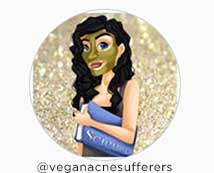
I first got acne in high school, and it came back in my early adulthood. I was able to struggle through those difficult times and come out of it a stronger, wiser, healthier person as a result. I'm here to help you do the same thing!

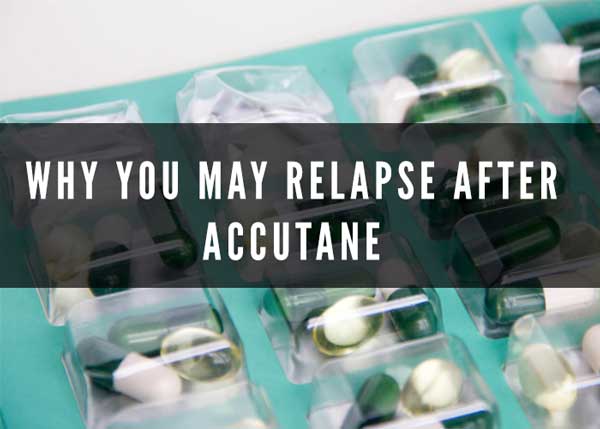

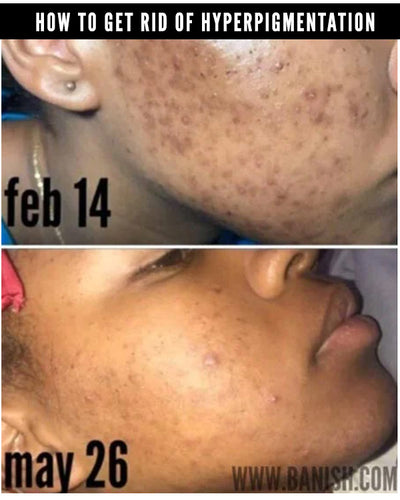
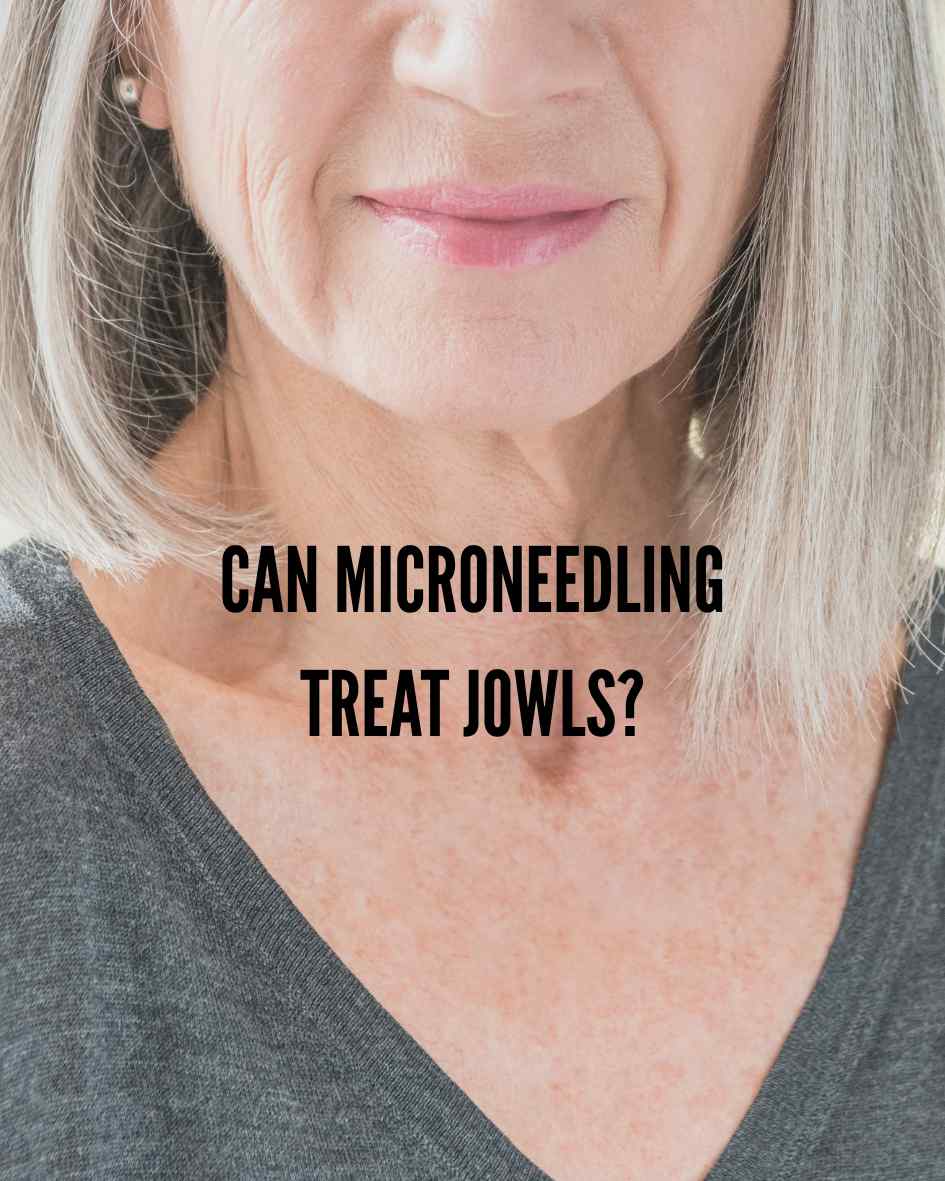










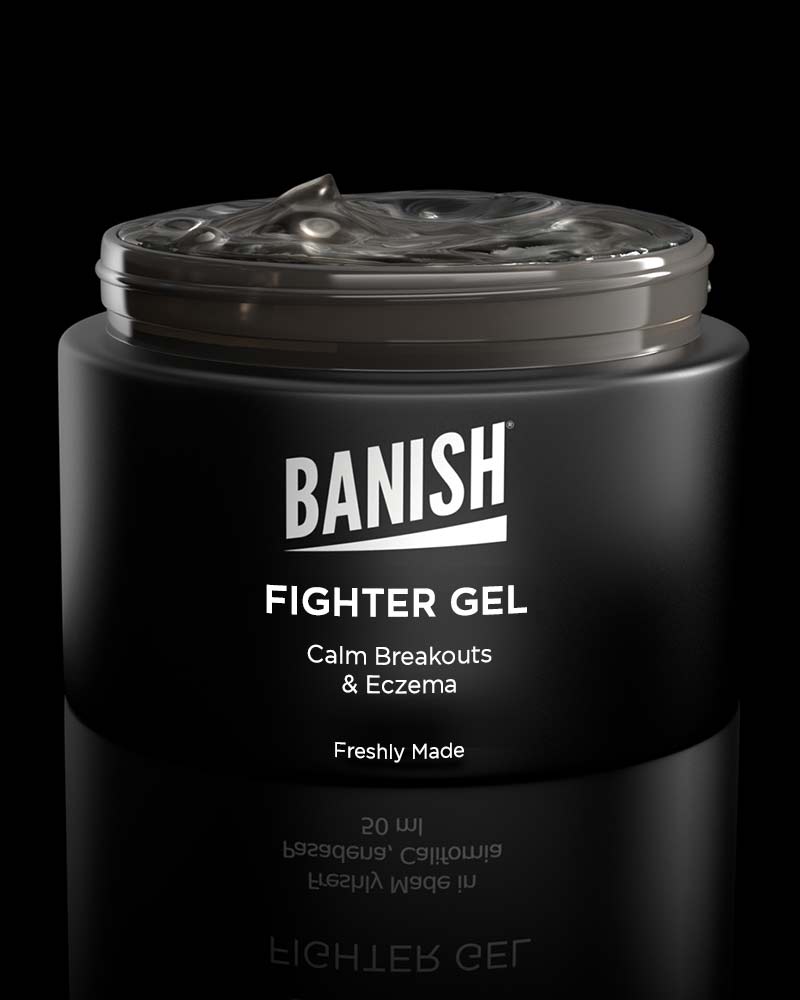
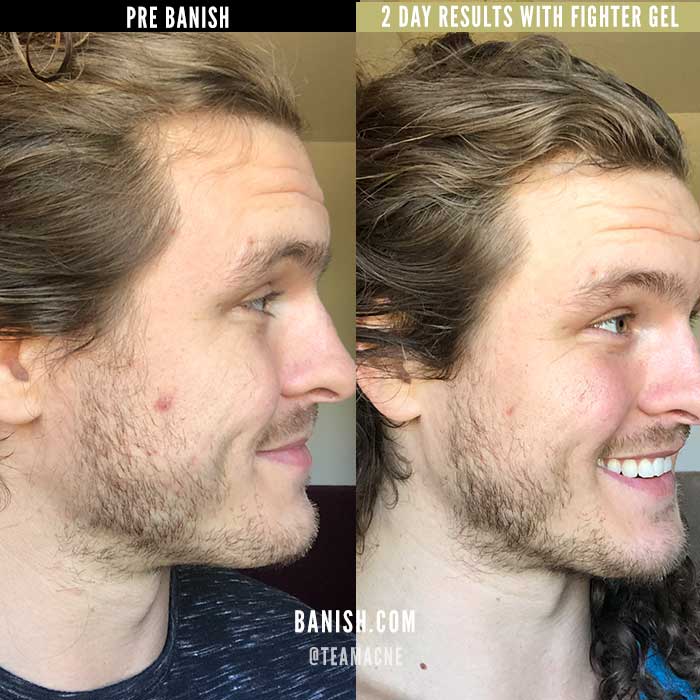










22 comments
Na
Accutane user for 8 months here. They convinced me that it would not come back. After reading all the comments, guess what… . It came back four months later for me too, and I developed IBS shortly after( if it is related to accutane is a medical guess…). I tried to resolve the issue on my own by cutting off skincare drama altogether and not care anymore. Just used cleanser of la.roche and sunscreen which had moisteriser in it too. It worked wonders. I was without acne without any derma help for 6 months. Then, pcos popped up this April. Severe acne again since last 2 months. Dermatologist pushed me to go on Accutane but I refused. Birth control might be needed, but that is another discussion. I asked her to give me a simple course of doxy to just get my body less inflamedl for now along with chemical peeling. Although I know it is not a solution, I just want my skin to get at least some rest. Afterwards , I think using less products and staying without stress is the best option. Let us hope I am right. I am not a supporter of Accutane, thus! And …you do have a say in your medical treatment. I know now that probably pcos is why the last 6 years I am struggling with acne..The first dermatologist put me on accutane without checking with an usg and other parameters for a link with pcos… stress is the biggest problem if you do have an otherwise healthy lifestyle when it comes to exercise and food like me. The fact that my acne cleared up when I stopped caring might be a proof. Let’s hope it is !! All the best to you all. Maybe we should all stop caring and stop being ashamed of it. We consider acne with ugliness triggering us to stress out even more. That might be the biggest problem of acne, in the end.
Faith
I am 15 and I have struggled with cystic acne for many years. I started going to the dermatologist when I was 12 and we tried everything under the sun except for Accutane because I was only 12 (I didn’t want to be a 12-year-old put on birth control). Nothing that we tried ever worked. When I was 14 we decide that we needed to do Accutane was the only thing left to do. I was on Accutane for 8 months because it wasn’t all cleared up. My face, lips, and nose were constantly dry. The only good thing was that my face wasn’t greasy, and neither was my hair. I have been done for about two months now, but my acne is already started to come back. I don’t know what to do because being on Accutane was so hard for me and I really don’t want to do another round. My skin looked so good right after I did Accutane, it was so smooth and perfect. Now it is become bumpy and textured, oily, and breaking out like crazy. Granted I’m 15, but I really wish that my skin would just be clear after going through so many months of that medicine. I don’t know if I should do a second round or hold off and see if it gets any better.
G
I had my first pimple at age 11. As this progressed to moderate acne in the years following, I begged my parents to buy acne cleansers and creams (remember Proactiv?!) to fix my skin – ultimately, I was left with bleached towels and broken dreams. At 15, I saw a doctor and was prescribed various topical treatments to no avail before being treated with doxycycline, which lessened the inflammation and severity of my acne though did not entirely rid me of it. I estimate that I took doxy for around 2 years, at which point my skin was resistant to its therapeutic effects and I was back to square one. After having unsuccessfully tried hormonal treatment (contraceptive pill), I was placed on my first course of acutane at 17. My acne was not cystic nor was it ‘severe’, and in order to minimise side effects I was administered a low-dose course of 20mg daily for around 9 months. My skin responded incredibly, but soon after treatment began a slow and steady relapse. I repeated the course a year later, and my skin repeated its relapse. At 21 my skin was worse than ever, and I clung to OTC topical treatments that left my skin dry, inflamed, and still breaking out. I educated myself around skincare, and implemented a research-based routine that incorporated active ingredients to target my acne prone, oily skin type. This provided me with little relief. Desperate and unable to afford a dermatologist at this point, I began self-dosing acutane that I had purchased online (VERY SKETCHY!). Again, I only saw benefits while taking the drug. At 23 I saw a dermatologist who was reluctant to try acutane a 3rd time, and instead prescribed tretinoin ointment and spiranalactone (anti-androgen for females). Zero results. At 24 I felt utterly defeated, and with nothing to lose I started seeing a specialist at a laser clinic. I invested a great amount of money into high quality, cosmeceutical skincare and biweekly chemical peels. Finally, my skin cleared up. I dialled back to monthly peels, and my skin maintained results well, only beginning to decline when the heat and humidity of summer arrived. Still, I found breakouts that did come to be manageable in a practical and psychological sense. At 25 I was diagnosed with ADHD and prescribed stimulants to treat this. As many who take this medication have, I am currently experiencing some of the worst acne of my life. I’m currently battling my body’s hormonal response to a medication that I must rely on until I complete my tertiary studies, which may be another 4 years yet. I tend to my physical and mental health with great care in an attempt to mediate my cortisol levels, which are undoubtedly the culprit. I have managed to reduce my skins inflammation, but not the degree or number of blemishes. With my skin as sensitive and inflamed as it is on my medication, it is unable to tolerate the chemical peels that once cleared it up. I am seriously considering a 3rd course of acutane, knowing I will likely relapse at some stage, just to carry me through to the point I finish my studies and can manage life without ADHD meds. I hope my experience resonates with somebody, and if it does I highly recommend you invest in cosmetic treatments at a trustworthy clinic AND high quality COSMECEUTICAL skincare. It is an expensive journey, but if you’re like me and nothing else has worked for you, you may see the value and worth of this investment. I also plan on seeing a naturopath to help manage my hormones and gut health to support my skin and overall health in the meantime.
Alisha
I took Accutane in my late teens and have had clear skin since and I am well into my 40’s. Of course there is always that pimple that can pop up due to monthly hormone changes, but overall I have been extremely happy with the results. This was truly a life changing miracle drug for me!
courtney
my skin cleared up amazing on Accutane, but every time I come off, it gets just as bad if not worse. I’ve been on it 4 times, and feel ultra defeated at this point.
Leave a comment
All comments are moderated before being published.
This site is protected by hCaptcha and the hCaptcha Privacy Policy and Terms of Service apply.